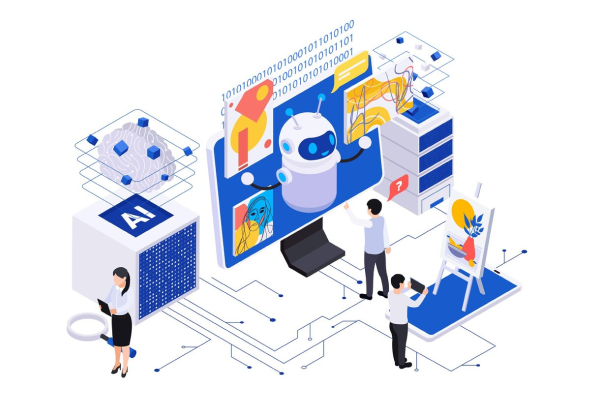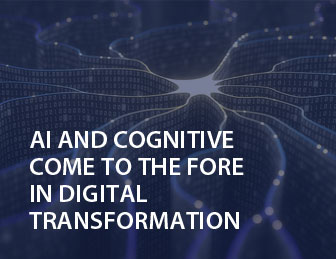Artificial Intelligence (AI) is a key technology that is quickly changing a lot of industries, including the media industry. AI has a significant and wide-ranging impact, altering everything from content generation to improving audience engagement.
Content Generation and Curation
AI is transforming the production of content by making data-driven, tailored strategies possible. Algorithms for natural language processing (NLP) examine enormous volumes of data to find popular subjects, audience preferences, and attitude analysis. With the help of this feature, media organizations may create content that appeals to particular audiences, increasing relevance and engagement.
Automated content generation is another frontier. AI-powered tools can generate articles, reports, and even video scripts based on predefined parameters. While human creativity remains essential, AI augments efficiency by automating repetitive tasks, freeing up human resources for more strategic endeavors.
Enhanced Data Analytics
In the digital age, data analytics drive decision-making across all sectors, including media. AI enhances this process by processing large datasets in real-time, extracting actionable insights, and predicting audience behavior. This capability empowers media companies to optimize content distribution strategies, advertising campaigns, and audience targeting with unprecedented precision.
Personalized User Experiences
AI enables hyper-personalization, transforming how media content is consumed. Recommendation engines powered by machine learning algorithms analyze user behavior, preferences, and historical data to suggest relevant content. Whether it’s music playlists, news articles, or movie recommendations, AI enhances user satisfaction by delivering personalized experiences tailored to individual preferences.
Enhanced Visual and Audio Content
Advancements in computer vision and speech recognition have revolutionized visual and audio content creation. GenAI-driven tools can analyze images and videos to categorize content, detect objects, and even generate descriptive captions. In broadcasting, AI automates tasks like video editing, transcription, and closed-captioning, improving efficiency and accessibility.
Fact-Checking and Verification
In the era of fake news and misinformation, AI plays a crucial role in fact-checking and content verification. Natural Language Understanding (NLU) models can assess the credibility of sources, detect inconsistencies in information, and identify potential biases. This capability helps media organizations uphold journalistic integrity and combat the spread of misinformation.
Audience Engagement and Interaction
AI-powered chatbots and virtual assistants are transforming audience engagement. These tools provide instant customer support, answer queries, and guide users through content offerings. Chatbots equipped with NLP capabilities can engage in meaningful conversations, offering personalized recommendations or troubleshooting assistance, thereby enhancing user satisfaction and loyalty.
Predictive Analytics in Audience Insights
Predictive analytics powered by AI forecast audience behavior and content performance trends. By analyzing historical data and external factors, media companies can anticipate shifts in audience preferences, optimize content strategies, and maximize engagement. This proactive approach allows organizations to stay ahead in a competitive landscape driven by rapidly evolving consumer preferences.
Challenges and Ethical Considerations
While AI offers immense potential, it also presents challenges and ethical considerations. Issues such as data privacy, algorithmic bias, and the ethical implications of AI-generated content require careful consideration. Media organizations must adopt transparent practices, uphold ethical standards, and prioritize user trust to navigate these challenges responsibly.
Conclusion
AI’s transformative impact on the media industry is undeniable. By leveraging AI-powered tools and analytics, media organizations can unlock new opportunities for creativity, efficiency, and audience engagement. As AI technology continues to evolve, its role in shaping the future of media promises to be both revolutionary and indispensable.
If you’re ready to harness the power of AI in the media industry, look no further than Flexsin. Our expertise in AI-driven solutions can help you stay ahead of the curve, optimize your operations, and deliver unparalleled experiences to your audience. Contact Flexsin today to transform your media strategy with cutting-edge AI technology.


 Anurag Dutt
Anurag Dutt


